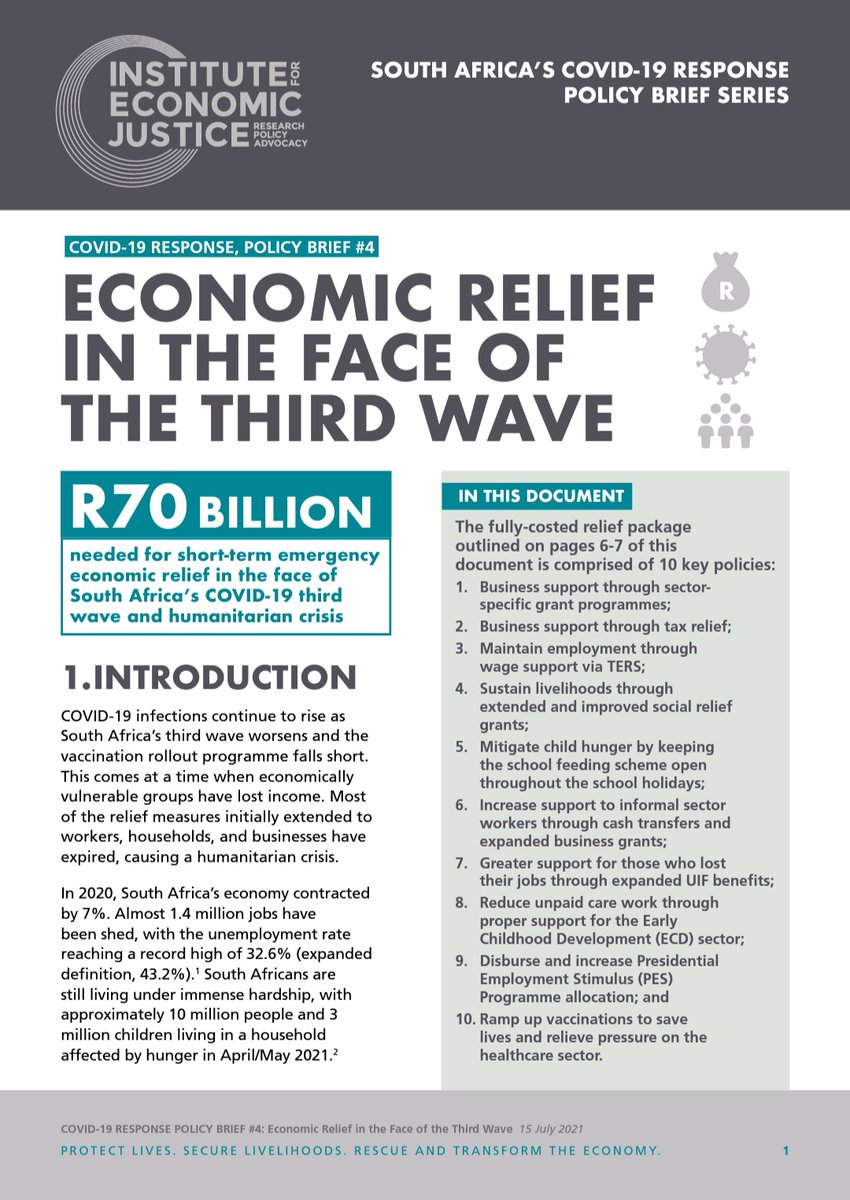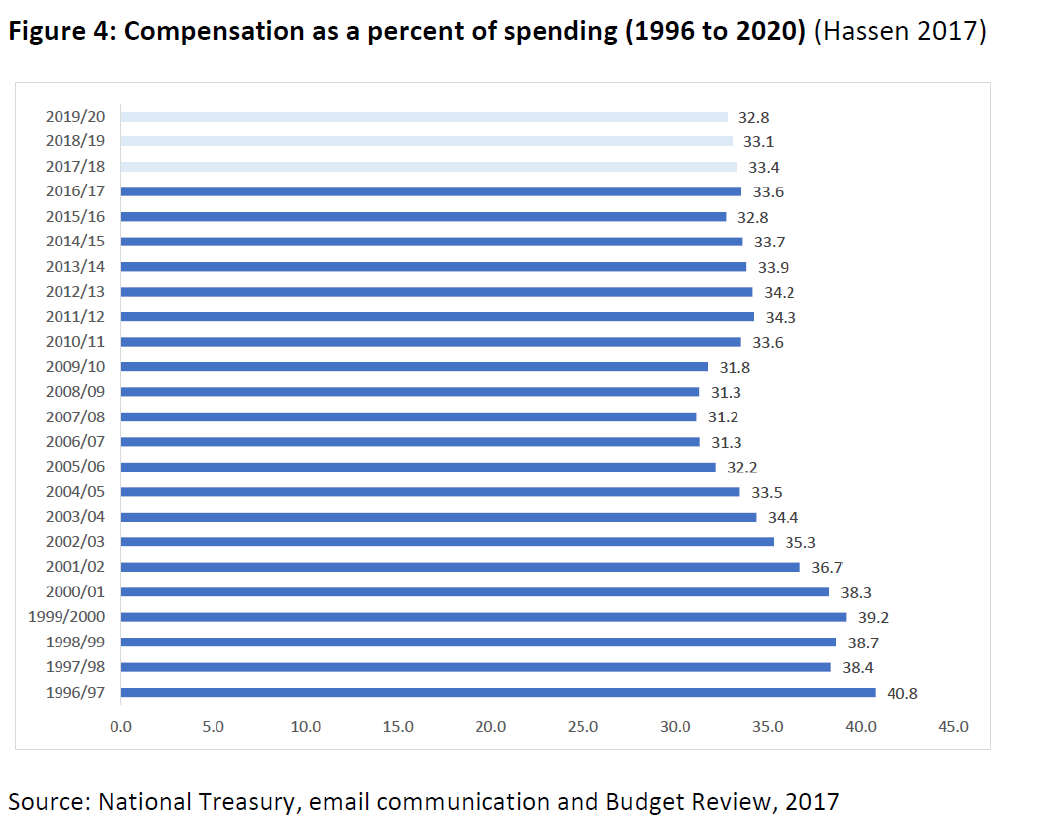
The @IEJ_SA calls on govt to roll out a R70 bn emergency relief package over the next 3 months. This proposal aimed to cushion the economic effects of #Level4 restrictions prior to the outbreak of civil #Unrest sweeping SA in recent days. Although this
mailchi.mp/iej.org.za/thi…


mailchi.mp/iej.org.za/thi…



package isn't a direct response to the civil unrest, the proposals remain relevant. Level 4 restrictions in the #3rdWave, while necessary, will hurt workers, businesses, & livelihoods. Even when civil unrest abates, underlying socio-economic crises will remain, and 



require even more urgent government action. The rolling out of these relief measures would need to be adjusted, and expanded, to address the damage caused by the recent unrest. But inaction is not an option, and will cost the country dearly.
• • •
Missing some Tweet in this thread? You can try to
force a refresh






